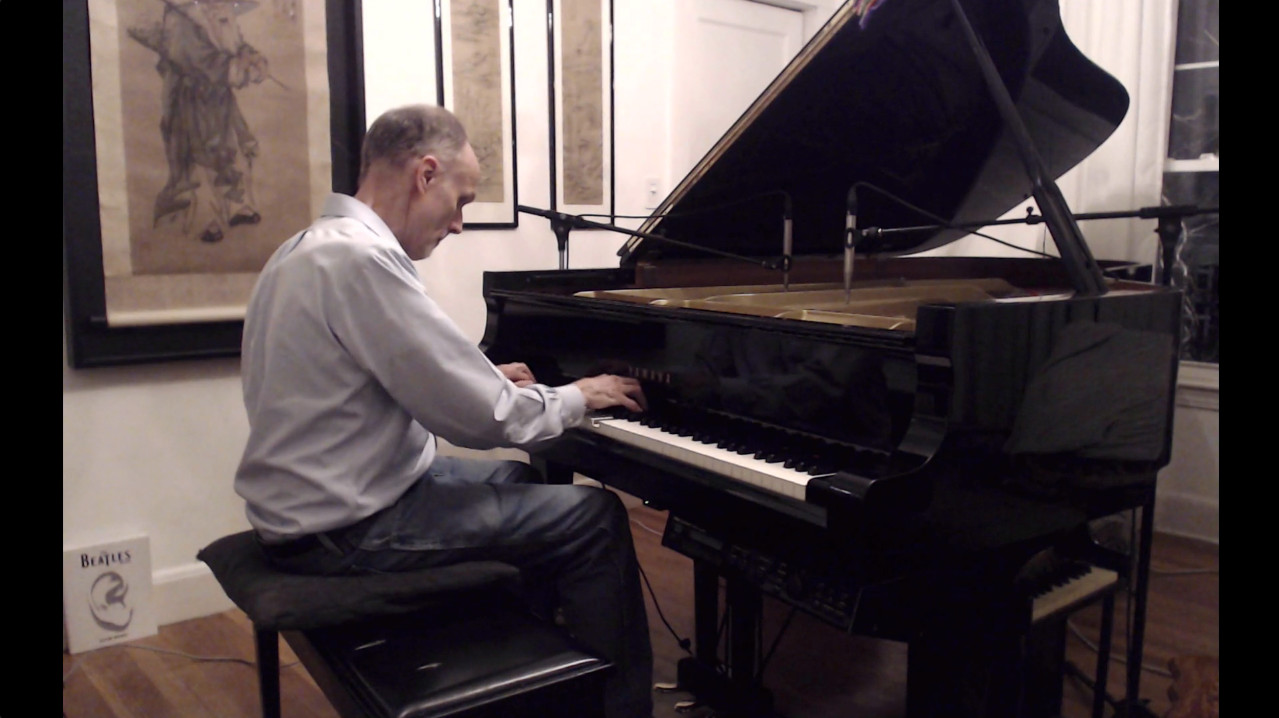

|
||||||||||||||||
With the arrival of the yamaha disklavier in 1993, I experimented with two-track recording using the piano as the interface to record the digital data for an acoustic bass, played back through speakers hooked up to the disklavier unit while the piano played itself. C Blues Etude, Take 1 is the initial, one-chorus result of this. Take 2 got a bit more involved.
The song is dedicated to Carol Hills, my second Mother. On so many levels, Carol blessed me with riches beyond compare. She and my Mother were supremely best friends. In a creative writing class in her later years, my Mother wrote a remembrance of Carol:
She was outspoken, easily tearful and adored jazz as well as classical music. Often when I came by for one of our sisterly visits, I would find her in their living room seated at one of the two 12 foot grand pianos playing her heart out. At parties she played for applause and fun. Alone at home she played to unburden her heart. For her the world as well as our individual human lives operated irrationally and deserved tender pity, tears and forgiveness.... “NUMBER ONE Confidant” she used to call me as our woman-to-woman relationship blossomed over the many years we both were members of the San Mateo Medical Society....
Carol died about six years ago and I still acutely mourn her loss whenever something really sad or awfully funny happens. I find myself silently mouthing words to her when events in our children’s lives come to fruition, events she saw the beginnings of all those years ago. I sometimes wonder if she isn’t up there looking down on our increasingly complicated world, alternately weeping and laughing over how ridiculous we human beings behave.
Carol’s musical intelligence was extraordinary. With the two grand pianos side-by-side she would play very involved Schubert duets with others and was utterly at ease whether sight-reading a Mozart Piano Sonata or playing Fats Waller by ear along with a record. It was through Carol that I first learned about boogie woogie and the spirited joyful music of the 1920s and ’30s as exemplified by Fats Waller, Albert Ammons & Pete Johnson, Willie “The Lion” Smith, and James P. Johnson.
|
|